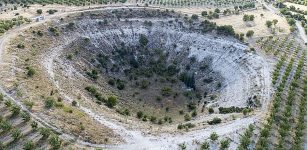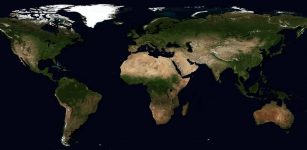Who Is Behind The Deadly Heatwave? Countries Responsible For Extreme Weather Events Identified
MessageToEagle.com – Scientists have identified countries responsible for extreme weather changes. The deadly heatwave has been attributed to man-made climate change and now we know who is behind it.
Researchers from the University of Oxford’s Environmental Change Institute (ECI) and CICERO in Oslo, Norway have combined new science of extreme event attribution and assessments of historic emissions from individual countries and regions in the world.
Deadly Heatwave In Argentina Killed Many People
Friederike Otto of the University of Oxford, UK and her colleagues studied a heatwave that struck Argentina in 2013/14. The heatwave brought some of the highest temperatures ever recorded in the nation’s capital Buenos Aires, killing many and collapsing the city’s power grid.
Image credit: Genaro Molina/Los Angeles Times/Getty
In a 2015 study, Otto examined whether climate change made the heatwave more likely. She simulated temperatures in Argentina with and without humanity’s greenhouse gas emissions and found that heatwaves like the one from 2013/14 were significantly more likely when our emissions were included.
Europe And The US Were Most Responsible For Deadly Heatwave
“We found that it is scientifically possible to quantify historical responsibility of individual countries/regions for specific extreme events,” said Dr Friederike Otto, deputy director of the ECI and lead author of the study.”
The fact that it is possible to provide such quantification will advance the possibility of an informed discussion,” Otto added. “The aim of the study was to explore what science could contribute to the debate of climate justice.”
The team applied two different statistical methodologies to assign contributions of individual countries’ emissions to an extreme weather event, using the example of the Argentinian heatwave of 2013/14.
See also:
Tropical Summers – Alarmingly Fast Increase In Heatwaves Reported
Karakoram Anomaly Defies Climate Change – Vortex Of Air Responsible For Anomalous Cooling
74% Of The World’s Population Will Be Exposed To Killer Heatwaves By 2100
Intriguing Study: Climate Change Does Not Affect All Glaciers Of Antarctica
While a previously published attribution study found that anthropogenic climate change overall made the event approximately five times more likely, the new analysis showed that when accounting for all historic emissions from 1850 onwards large emitters like the U.S. and the EU made the event approximately 28% and 37%, respectively, more likely. The differences between the different methodologies were small compared to the overall responsibility assigned to the individual region.
The results strongly depend on two important choices that need to be made prior to assessing the individual countries responsibilities for the increase in an extreme weather event: (1) the definition of the extreme event itself in this case the choice was seasonal mean temperatures over an area around Buenos Aires and (2) the time period over which historical emissions are assessed; in this case, the decision was to use emissions since 1850.
Should Countries Be Held Responsible And Pay?
Many climate activists argue that developed countries, which have historically contributed the most to climate change, should be held most responsible for stopping it.
“The aim of the study was to explore what science could contribute to the debate about climate justice,” says co-author Ragnhild Bieltvedt Skeie of the Center for International Climate and Environmental Research in Oslo, Norway.
However, it is unlikely that Western nations will be made to pay up to pay damages for fouling the atmosphere anytime soon. The Paris climate change agreement of 2015, which almost all countries have now signed up to, focuses primarily on cutting greenhouse gas emissions.
As the study observes, the agreement “ruled out the possibility that addressing loss and damage associated with the adverse effects of climate change should provide a basis for liability or compensation”.
MessageToEagle.com
Expand for references











